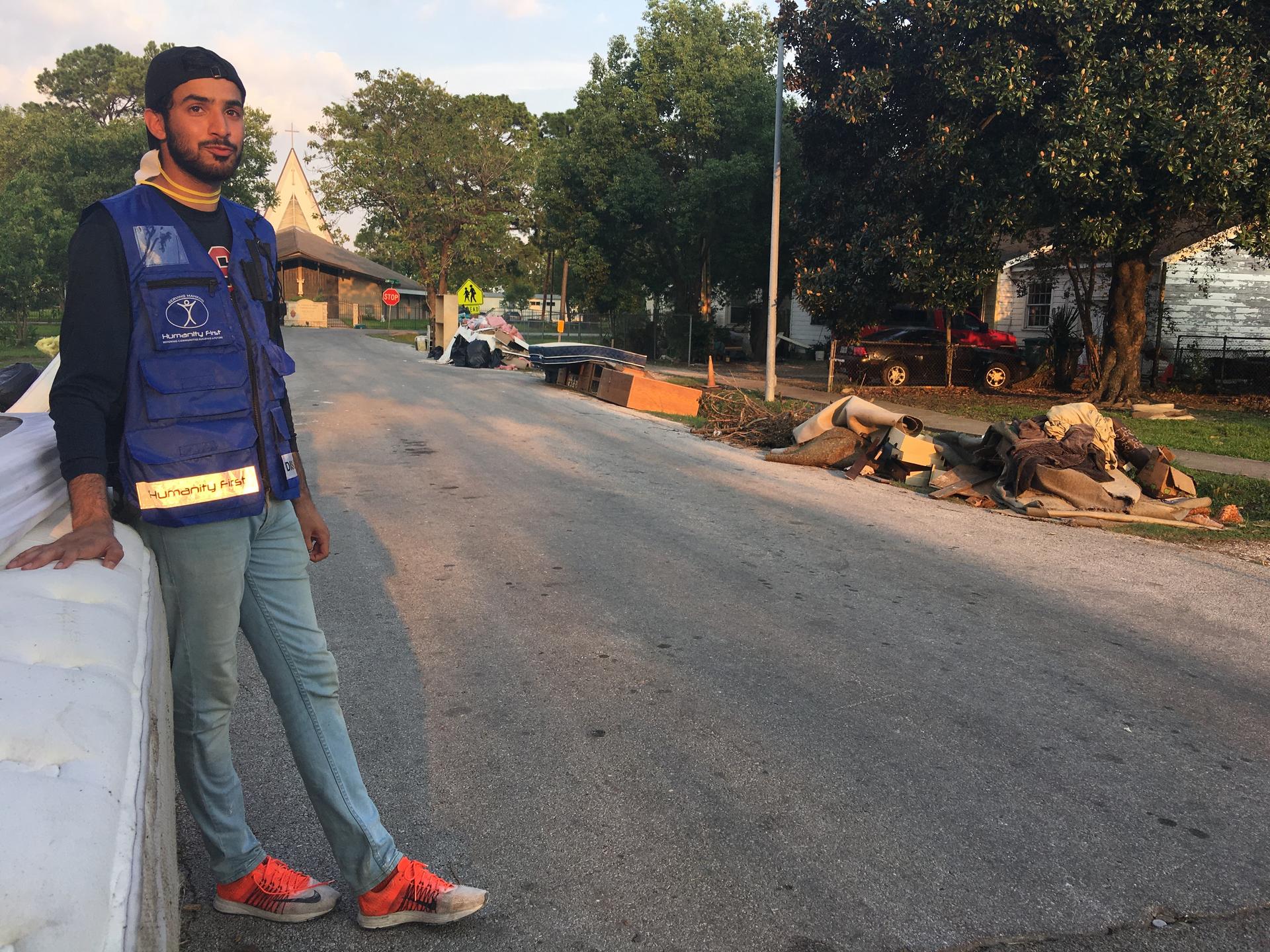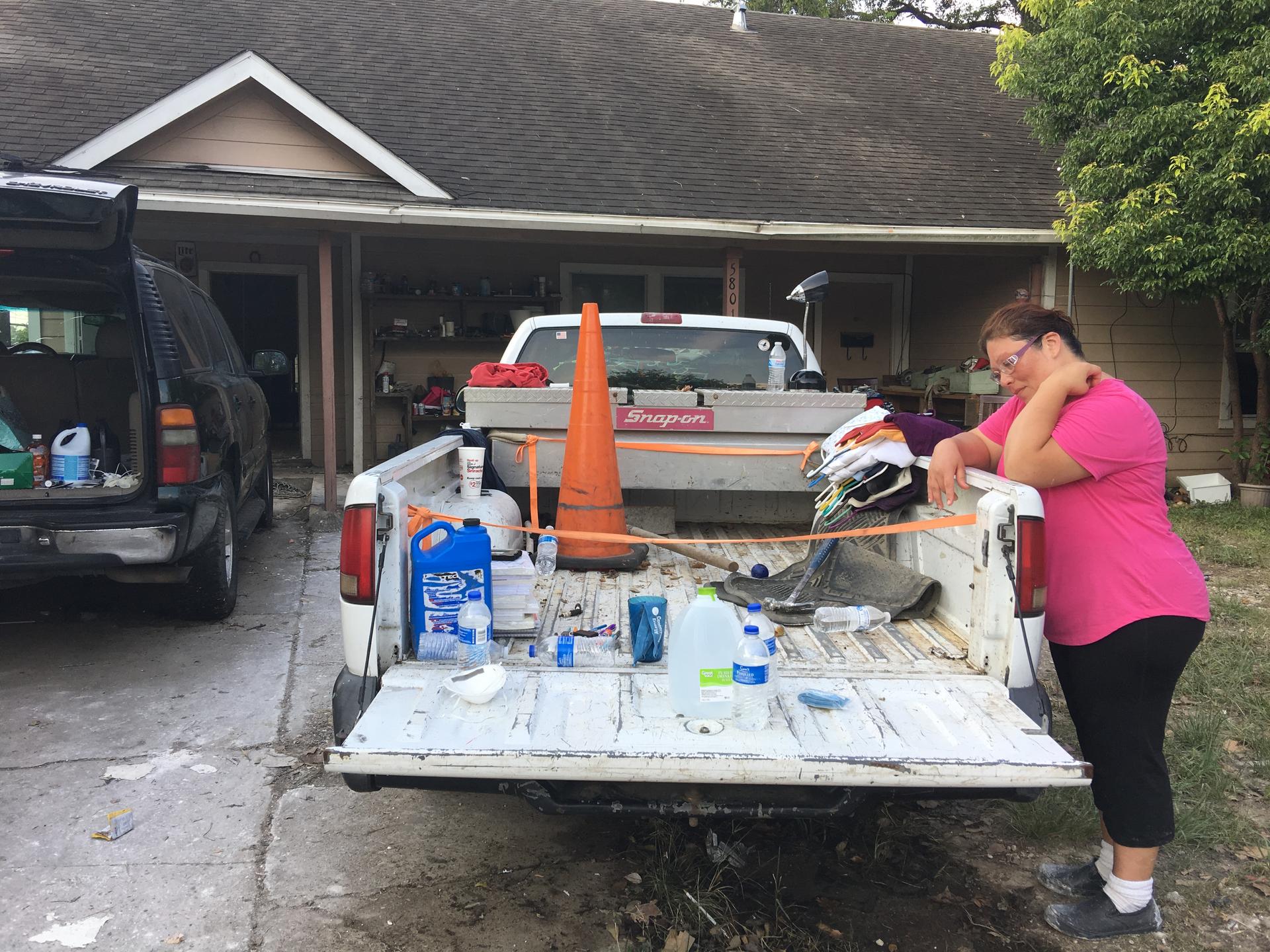Immigrants face impossible choices in the aftermath of Hurricane Harvey
Sonia Saldaña stands in front of her home in Houston's Kashmere Gardens neighborhood, hit hard by Hurricane Harvey.
For the last several weeks, headlines have been dominated by hurricanes and floods, causing devastation from India and Nepal to the Caribbean. Hurricane Irma is just the latest in a ferocious season of natural disasters.
With long-term recovery in mind, I partnered with the BBC World Service to produce “Seeking Refuge in Houston,” which focused on Houston and what happens in the aftermath of a terrible storm.
People were quick to tell me about the city’s resilience — about how its diverse communities have come together in a shared hour of need. There were clear examples of that, including a quick reaction by one group of young Muslim American volunteers to help neighbors clear out their flooded home and begin the cleanup.

At the same time, the future for some immigrant communities in Houston is anything but certain. Much of the city was struggling with questions around prejudice, poverty and immigration before the storm hit. Harvey has made those questions more urgent, including for Silvia, a mother of four from Guatemala, who has worked as a housekeeper in Houston for 16 years. Three of her children are US citizens, born after Silvia came to the United states. Their father has been deported twice and is in Honduras at the moment.
Silvia and her son Joshua, who has lived his whole life in the city, showed me their home, upturned by the storm, with all of their belongings on the street — some ruined, the rest drying out. The family was just getting by, with not much food on hand and the clothing on their back. This, despite the fact that a major donation center and shelter was not far away. “We haven’t got there,” said Joshua. “We’re just staying here in the apartment.”

Why? Silvia is undocumented, which is why we are not publishing her full name, and she says she is nervous about going to a shelter, with police and Department of Homeland Security agents on patrol. She worries about being asked for her identification and perhaps being flagged as someone in the US without the correct papers, and perhaps putting herself at risk of deportation.
“The immigrant community itself is about 600,000 undocumented people in the greater Houston area. That means that one out of every 10 Houstonians is undocumented,” says Cesar Espinosa, the executive director of FIEL, an organization that supports immigrant communities in Houston. “Many people did not seek shelter because they were afraid to be asked about their immigration status … people’s fears are sometimes greater than whatever any authority says.”
